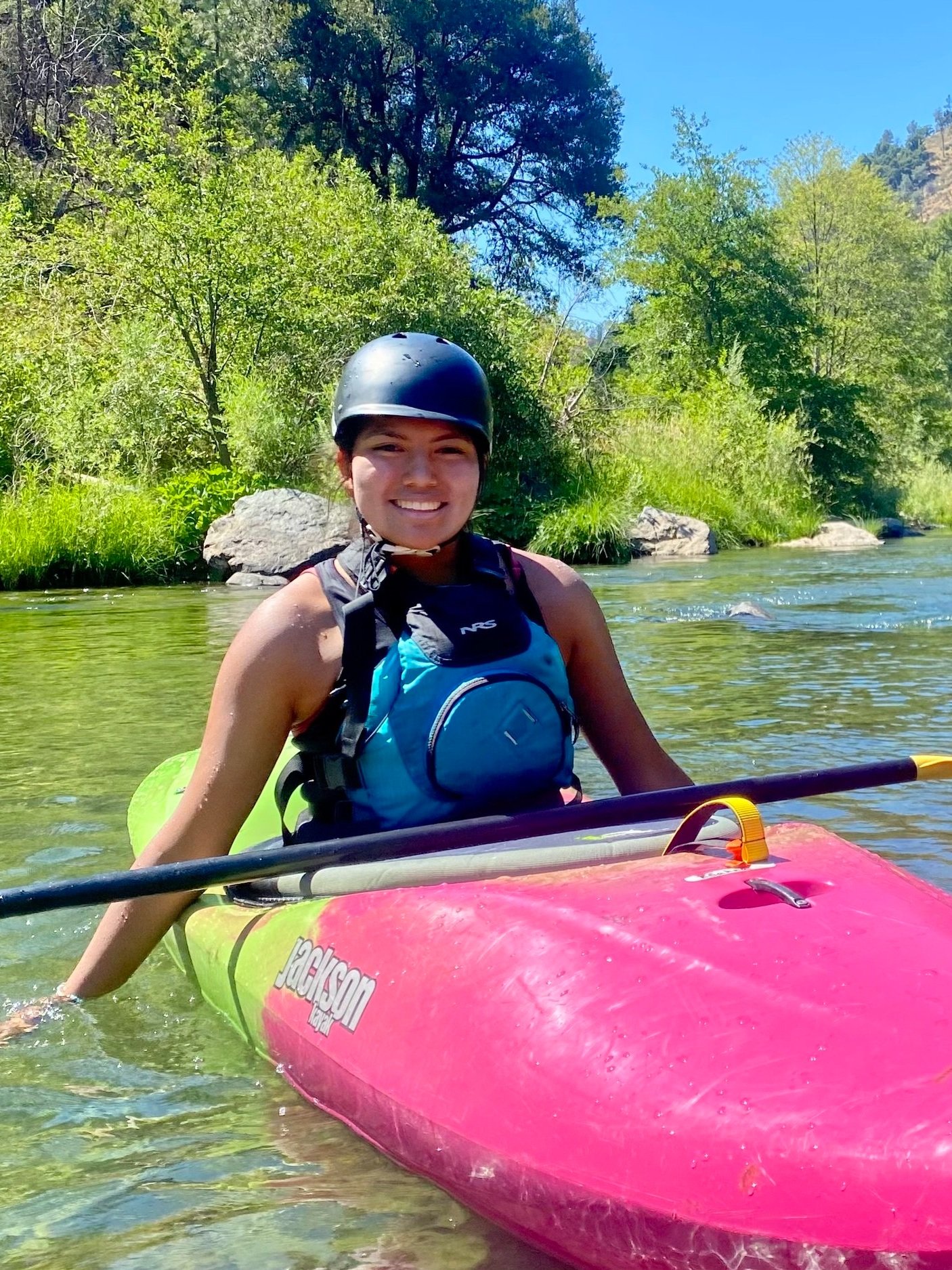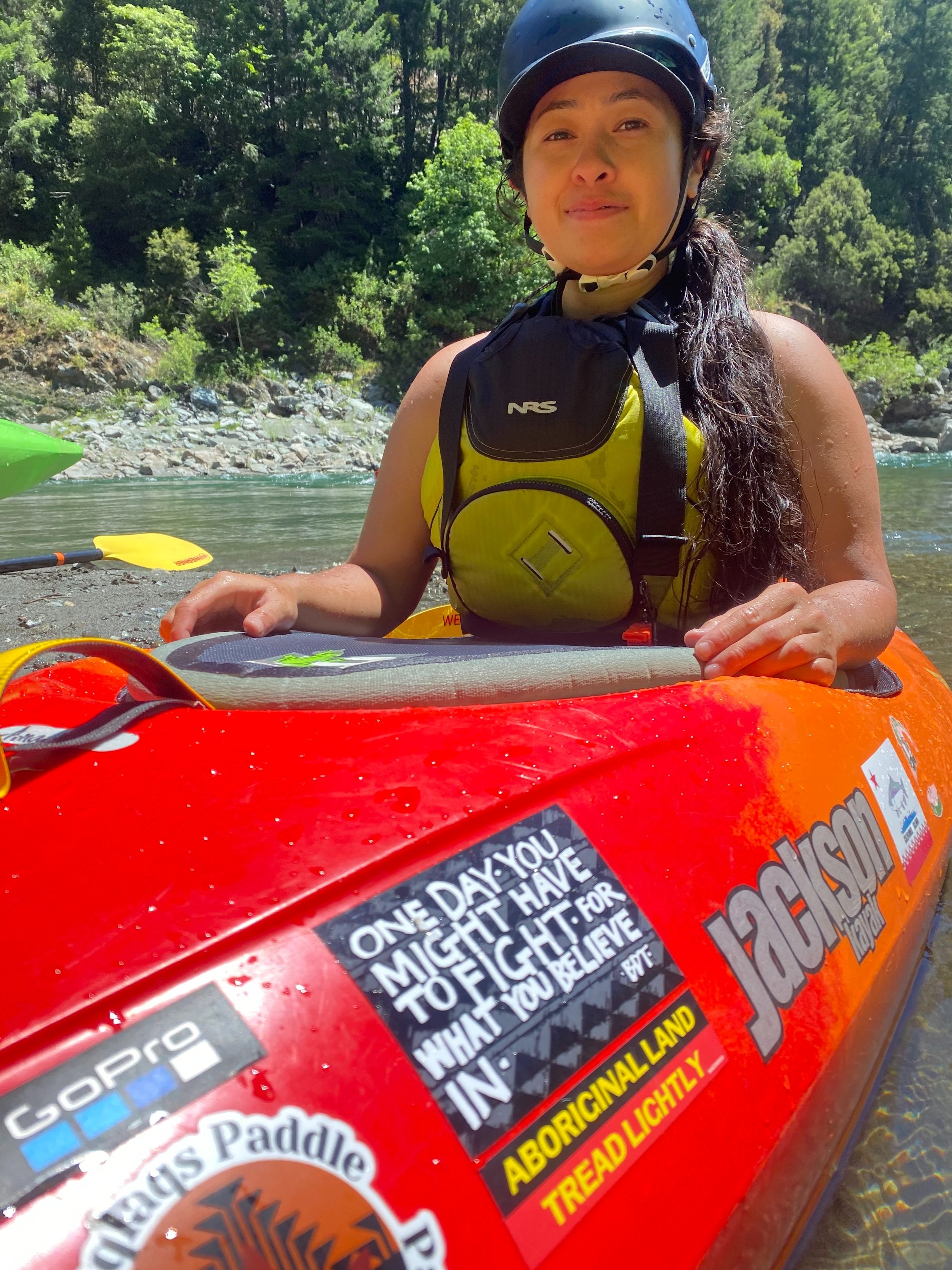Northern California
Tribal Youth Coastal Connection
We are proposing the Northern California Tribal Youth Coastal Connection event to empower Indigenous youth by fostering a deeper connection to their cultural heritage and the natural environment. By providing opportunities for hands-on experiences in the watersheds that connect their communities to the coast, we aim to deepen their understanding of traditional practices and the vital role of environmental stewardship. This event seeks to cultivate a sense of identity and belonging, encouraging youth to connect with their cultural roots while building resilience and leadership skills for the future.
A unique aspect of this event will be the exchange of stories between tribal youth who live along free-flowing rivers and those from areas where rivers have been dammed. Youth from free-flowing rivers can share their experiences of seeing salmon runs and witnessing the natural cycles of an undisturbed river ecosystem, while youth from dammed river communities can discuss the challenges they face in reclaiming water access and advocating for river restoration. This exchange will highlight both the beauty and resilience of their shared natural heritage, providing valuable perspectives on how environmental changes impact cultural practices and identities.
Additionally, this initiative aims to strengthen inter-tribal relationships, fostering collaboration among the diverse tribes in the region and creating a supportive network for youth to share their experiences and learn from one another. By integrating recreational activities like paddling with cultural education, we hope to inspire a new generation of advocates for their communities and the ecosystems they cherish, ensuring that these traditions and waterways are preserved for future generations.
Participants in the Northern California Tribal Youth Coastal Connection event will include members from several local tribes, each deeply connected to their respective lands and cultures. The Hoopa Tribe, residing in the Hoopa Valley, has a strong bond with the Trinity River, a tributary to the Klamath River and is actively engaged in community development. Nearby, the Yurok Tribe along the Klamath River is dedicated to cultural preservation and revitalizing their language, emphasizing their reliance on natural resources.
In the Arcata area, the resilient Wiyot Tribe is actively reclaiming their ancestral lands and restoring vital cultural practices linked to Humboldt Bay. Further inland, the Karuk Tribe continues to maintain traditional fishing and gathering practices while working on language revitalization. Additionally, members from the Cher-Ae Heights Indian Community of the Trinidad Rancheria and the Redwood Valley Rancheria, home to the Pomo Tribe, contribute to the rich cultural fabric of the region, embodying the enduring spirit and resilience of Indigenous peoples. Together, these tribes represent a diverse array of histories and traditions that enrich the community weekend experience.
The Northern California Tribal Youth Coastal Connection is an immersive experience designed to connect Indigenous youth with their cultural heritage, local waterways, and the environment. Scheduled to take place over two weekends, this event will bring together participants from various tribes for a series of paddling activities and educational sessions that highlight the significance of the region's rivers and their connection to the ocean.
An essential aspect of this event will be exploring the differences between free-flowing and dammed rivers, giving youth a deeper perspective on how their watersheds shape their communities. Participants from areas with free-flowing rivers will share experiences of witnessing natural cycles like salmon runs and the undisturbed rhythm of their waterways. In contrast, youth from communities along dammed rivers will discuss the challenges they face around limited water access, disrupted ecosystems, and their ongoing efforts to reclaim and restore these rivers. This exchange of stories and perspectives will allow participants to see the resilience and adaptability of each community, reinforcing the interconnectedness of their ecosystems and cultural practices.
Through guided paddling excursions, youth will explore these waters firsthand, fostering a hands-on appreciation for their natural surroundings. As they navigate the waterways, they’ll learn about the ecological importance of these rivers and gain insights into traditional, sustainable practices related to fishing, gathering, and water management. Interactive discussions will encourage them to think critically about environmental stewardship and their role in preserving these vital ecosystems, both as individuals and as a united community.
In addition to environmental education, the event will focus on cultural revitalization. Traditional stories, songs, and teachings about water navigation will be woven into the paddling experience, deepening participants' understanding of their heritage. Youth will be encouraged to share their own cultural narratives, creating a rich tapestry of Indigenous voices and perspectives that honor the past while looking toward the future.
The weekend will also emphasize community-building and inter-tribal relationships. Through collaborative group activities, participants will have the opportunity to connect with peers from different tribes, fostering teamwork and camaraderie. This supportive environment will allow youth to exchange ideas, cultural practices, and personal stories, reinforcing the bonds that unite them as Indigenous peoples. In blending environmental awareness with cultural connection, the event aims to inspire a new generation of leaders and advocates dedicated to preserving their heritage and protecting the ecosystems they cherish.

